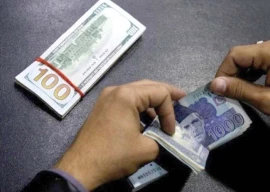Global firms, especially the multinational companies that have shifted their production process to the developing and least developed countries, are coming under increased scrutiny from the consumers and civil society because of the manner in which products are being manufactured.
There have been persistent pressures on these companies to ensure that their products are manufactured in facilities that are safe for the workers and that the compensation is fair and within the best international practices.
There are also calls that the production process should not harm the environment and the ecosystem.
Pakistan’s situation
These practices have implications for countries like Pakistan where a number of global firms are sourcing their finished products.
In the late 90s, sports industries of Pakistan came under pressure due to complaints of widespread use of child labour, especially in the manufacturing of hand-stitched soccer balls.
There was an international media outcry about the labour conditions of some companies in Sialkot, which produced the famous hand-stitched footballs used in international competitions including the World Cup.
The stakes were very high not only for the global brands sourcing from Pakistan but also for their local partners.
This led to the realisation of addressing this concern and the local manufacturers with the support of the International Labour Organisation (ILO) and the United Nations Children’s Education Fund (Unicef) signed the famous Atlanta Agreement to eliminate child labour in the manufacturing of soccer balls.
The Atlanta Agreement also created an independent monitoring mechanism that certifies that the products being manufactured do not use child labour.
This is one of the success stories of collaboration of the domestic industry in implementing the international labour standards and devising a monitoring mechanism for its enforcement based on self-policing.
The companies that participated in this programme have been able to re-establish their partnership with global brands for manufacturing sports goods by complying with international labour standards.
Carpet-makers lose market
Carpet weaving is another sector that came under scrutiny of the media where there were allegations of child labour. Due to these allegations, the industry has lost export business in major markets in the European Union (EU) and North America.
Other than global companies, the governments in developed economies are also sensitive to the concerns of their consumers and have incorporated labour protection provisions in their trade preference programmes. The US Generalised System of Preferences (GSP) provides duty-free access for approximately 5,000 products from 140 countries including Pakistan, provided these countries take measures to implement internationally recognised worker rights.
Applying for these concessions, the beneficiary countries have to agree to a periodic monitoring mechanism to ensure that the concerns relating to worker rights are addressed. In 2013, the US suspended GSP concessions for Bangladesh due to violation of labour standards.
Pakistan is also a beneficiary of the EU’s GSP Plus trade concessions where majority of exports from Pakistan enter the EU duty-free.
To be eligible, Pakistan has agreed to ratify and implement 27 international conventions relating to labour, environment, social protection and good governance. It has also agreed to a periodic review from the European Commission.
The first review is scheduled for January 2016. In case Pakistan is found violating the conventions, the trade concession could be withdrawn by the EU. In 2010, the EU suspended Sri Lanka’s GSP Plus concessions after the UN reported widespread violation of human rights.
Pakistan excluded
Walt Disney, one of the prominent global brands, has recently announced to only procure from countries that implement ILO’s Better Work Programme that provides capacity building to the beneficiary countries on worker protection in the textile sector.
Since this programme is not in place here, Pakistan is excluded from Disney’s Permitted Sourcing Countries. This has led to the loss of $200 million to the textile industry and has the potential to create a snowball effect, as other prominent western brands may follow similar decisions.
There have been a number of academic studies that have empirically quantified the benefits for countries implementing globally recognised labour protection rights.
International conventions especially the ratification of ILO’s core standards are linked to market access under various bilateral, regional, multilateral trade agreements.
The countries that have implemented these standards are not only seen as responsible members of the international community protecting their working class from exploitation, but have also reaped economic benefits due to enhanced market access available to their industry through various trade preference programmes.
We have the example for the soccer ball industry in Sialkot that has benefitted considerably by eliminating child labour. The industry took the initiative and developed a transparent monitoring mechanism to eliminate child labour.
Although it is the responsibility of the government, especially provincial governments, in implementing labour laws, the private sector also has to show its resolve to protect worker rights.
At the core of it is the ultimate objective of improving the well-being of the individuals in a society.
The writer is a development professional with over 20 years of experience in public and development sectors
Published in The Express Tribune, November 30th, 2015.
Like Business on Facebook, follow @TribuneBiz on Twitter to stay informed and join in the conversation.
1728297472-0/Fousey-(1)1728297472-0-405x300.webp)

1730806672-0/diddy-(37)1730806672-0-165x106.webp)
1731748155-0/BeFunky-collage-(8)1731748155-0-165x106.webp)













COMMENTS
Comments are moderated and generally will be posted if they are on-topic and not abusive.
For more information, please see our Comments FAQ